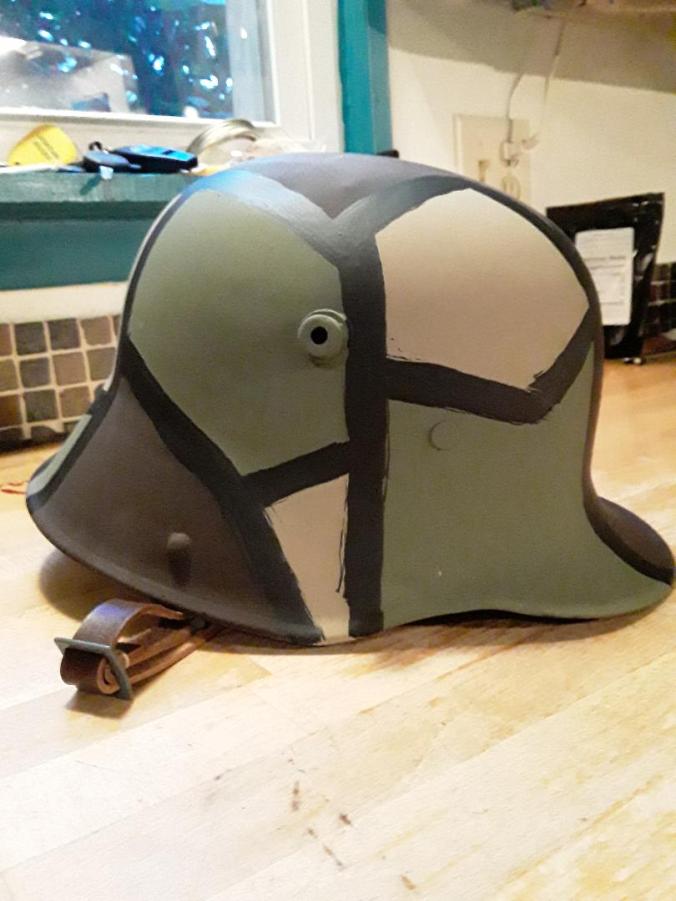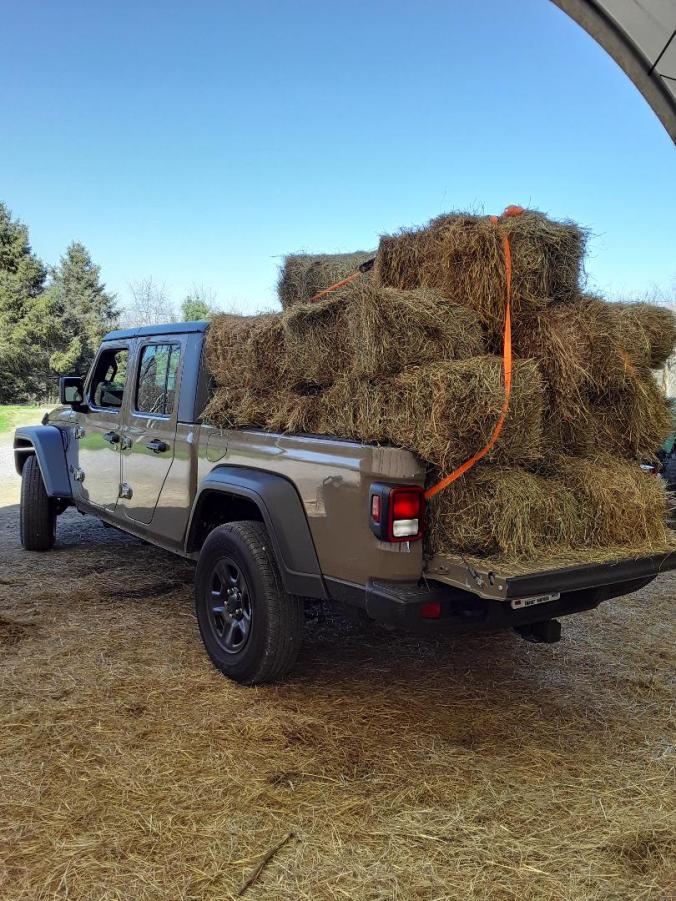
Alright, maybe I should get an iPhone if I want truly awesome pictures, but I think you get the general idea; a pretty farm that I pass during my morning walk.
“Mens sana in corpore sano.” That’s Latin for “a sound mind in a sound body.” Something I figured out a while ago, and that the military has known since Roman times, is that a key ingredient to staying sane is to get some exercise by any means necessary.
This is especially true right now with The Great Global Lockdown.
I am not going to talk about the lockdown. Everybody knows about it.
I will only say that I’m fortunate to be authorized to walk outdoors, and I can do it without violating the law or endangering myself or others. The village I live in is deserted.
But I digress.
Would like to talk today about my writing habits while in project mode; how I do stuff to make books and stories happen.
The first thing I do when I get up is walk the dog and drink some coffee. I use this time to think through scenes I plan on writing; it is important to have your outline or something open in your computer, notebook, or whatever. Why? Because if you have a good idea for a scene, you need to jot it down on the spot.
When I fail to do this, the idea is gone. All it takes is a sentence; for example: “Chapter 3 (2). John packs his bags for the trip. He thinks about the war.” That’s it; that’s all I need. I can come back to this later and remember what I meant to write there.
It seems that a lot of the work I do looks like goofing off, and let’s be honest, it is. But then again, it’s not. Confused? Allow me to explain.
Here’s my take on goofing off or taking a nap.
People like stories, it’s how they relax. Goofing off, if you will. The stuff I write is fiction; it’s not meant to be something that people labor at or work hard to understand. How can I get my readers to relax and get into the story if I’m not having fun myself? If I’m not enjoying the process?
I think this answers my own question. If I’m killing myself to write, then I write garbage.
So I slack. I make sure that I go for a walk, preferably at dawn. I walk at a fairly brisk pace, I make sure to get my heart rate up a little and to sweat some. Not like some crazy fast walk, but a pace that allows me to think random thoughts as opposed to concentrating on pushing my body.
Does this make sense? Because my walks feed into my writing; a lot of the time I’m still thinking about the book as I cruise along. Obviously I can’t really jot down notes as I’m walking, but it doesn’t really matter. I deal more with organizational things than creative stuff as I exercise.
When I get home I take care of some chores, and after that is when I sit down, re-check email and write web posts.
In a normal world, my family would be gone for their daily activities, and I could sit down alone in the living room and begin to type.
As it is, my family is here and everyone prefers to use the MacBook that I use to write with. So how do we make that work?
We are settling on a system where we have time slots. For example: Today. I say that I need to do one web post and have a chapter banged out by 1500. Three in the afternoon seems like random time slot, but it’s actually not. It corresponds to the time when my Australian friends and collaborators are waking up; I like to have stuff on their desktop when they drink their tea and get ready for the day.
So, I have two slots for the computer during the day. One is from about 0800-1000, then around 1200-1500.
This is how it’s shaking out during the Siege.
Why is there a two-hour gap in there? Two reasons. One is to allow others access to the MacBook. The other is so that I can take a nap.
A nap? Really?
Yes. Here’s why.
A lot of time I don’t sleep during my nap, I put my mind in neutral and tell myself stories. I’ve been doing this since I was a child. Sometimes it pays off and gives me an answer to a difficult scene or a dilemma in a book; what is important is to never force this type of thing. It’s like trying hard to remember someone’s name. The harder you think, the less the recall. So I don’t try. I put my mind in neutral and accept whatever happens.
So once again, it looks like I’m goofing off. But I’m actually not.
Here is the payoff- consistent 2000-3000 word days under stress and bad circumstances, sustained. Craziest day ever was December 2016 when I wrote Immolation. Ten-thousand words. It was as if I vomited out the story, I couldn’t stop. But that’s only happened to me once, thank God.
People are built to be burst workers. It’s how our hunter-gatherer ancestors operated. Work like hell on one goal, eat the slain animal, lay around with full bellies. Lazily contemplate where the next BBQ is coming from. Rinse, wash, repeat.
Of course, most of you hold jobs, so my technique would have to be considerably modified to adapt to your unique situation.
I guess the big thing for me when writing is to have a goal, a quota, but make it playtime. Serious playtime, if that makes sense.
When deployed and in combat, long before I took up the pen, I used to spend any free time I had sitting in some random spot, preferably alone and chain-smoking. I’d create some pleasant story, and every day I’d add onto it. It took me away from miserable Firebase X.
This habit translated into writing novels during my early retirement.
This. This is how I cope with the Siege.
If you want to write, give the screwing-off technique a try.
To sum it up;
- Start the day with some exercise.
- Set a realistic goal.
- Carve out personal space and time.
- Sit down and execute.
- Recognize where your time sinks and distractions are; plan around them.
- Tell others your goals. This guilts you into completion.
- Play and screw around! You need it.
There. This is how I do things.
Now it’s time to write.






